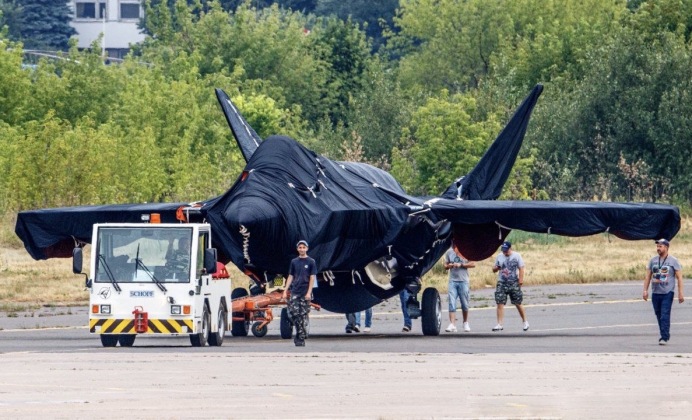The United Arab Emirates has suspended talks for the acquisition of F-35 stealth fighters from the United States, after plans for a $23 billion contact for 50 fighters, 18 MQ-9 Reaper drones, and various associated armaments was stalled in the first months of the Biden administration. “The UAE has informed the U.S. that it will suspend discussions to acquire the F-35,” an Emirati official stated on December 14, highlighting m that “technical requirements, sovereign operational restrictions and the cost/benefit analysis” had forced Abu Dhabi to reconsider its procurement plans. He added, however, that the U.S. “remains the UAE’s preferred provider for advanced defence requirements and discussions for the F-35 may be reopened in the future.” The announcement comes less than two weeks after the UAE unexpectedly signed a $19 billion contract to acquire 80 Rafale fighter jets from France, an older and lighter aircraft from the previous generation which lacks the F-35’s advanced stealth capabilities. Aside from speed and range, the F-35 is considered a superior fighter to the Rafale in all major parameters with the American aircraft powered by the strongest fighter engine in production worldwide and the French one the very weakest engine.

In response to Abu Dhabi’s pulling out from the deal, U.S. State Secretary Anthony Blinken stressed on December 15 that a sale was still possible despite earlier indications that the Biden administration opposed such a deal. “We remain committed to move forward with (the sales of) both (F-35 jets and drones) if that’s what the Emiratis are interested in doing. We want to make sure, for example, that our commitment to Israel’s qualitative military edge is assured so we wanted to do a full review of any technologies that are sold or transferred to other partners in the region, including the UAE”, he stated when questioned on the issue. “I think we continue to be prepared to move forward if the UAE wants to pursue…both of these systems”, he added. The F-35 deal has reportedly come with multiple extensive conditions on how the aircraft can be used, and required political concessions by Abu Dhabi many of which related to its close economic and security ties with China – ties which Washington long opposed.

The F-35 is the only fifth generation fighter in the world to have been exported, and is one of just two fielded at squadron level strength and in serial production today. The fighter currently has a limited initial operating capability but is still far from ready for high intensity combat, with full scale production delayed by the Pentagon for several years due to ongoing performance issues. It is considered a lighter and cheaper counterpart to the F-22 Raptor and upcoming F-X heavyweight twin engine aircraft. The fighter’s performance has been very harshly criticised by American officials including multiple defence secretaries, although supporters of the program claim it has the potential to be a world leading fighter once it becomes operational and its hundreds of current performance issue are resolved. The UAE Air Force today operates two lightweight fourth generation fighters, the French Mirage 2000 and the American F-16E. While the Rafale is now set to replace the ageing Mirage, the F-35 is expected to eventually replace the F-16 if acquired. If not, the Russian Checkmate stealth fighter which Abu Dhabi reportedly helped fund could provide the UAE Air Force with its first fifth generation aircraft after 2025.
